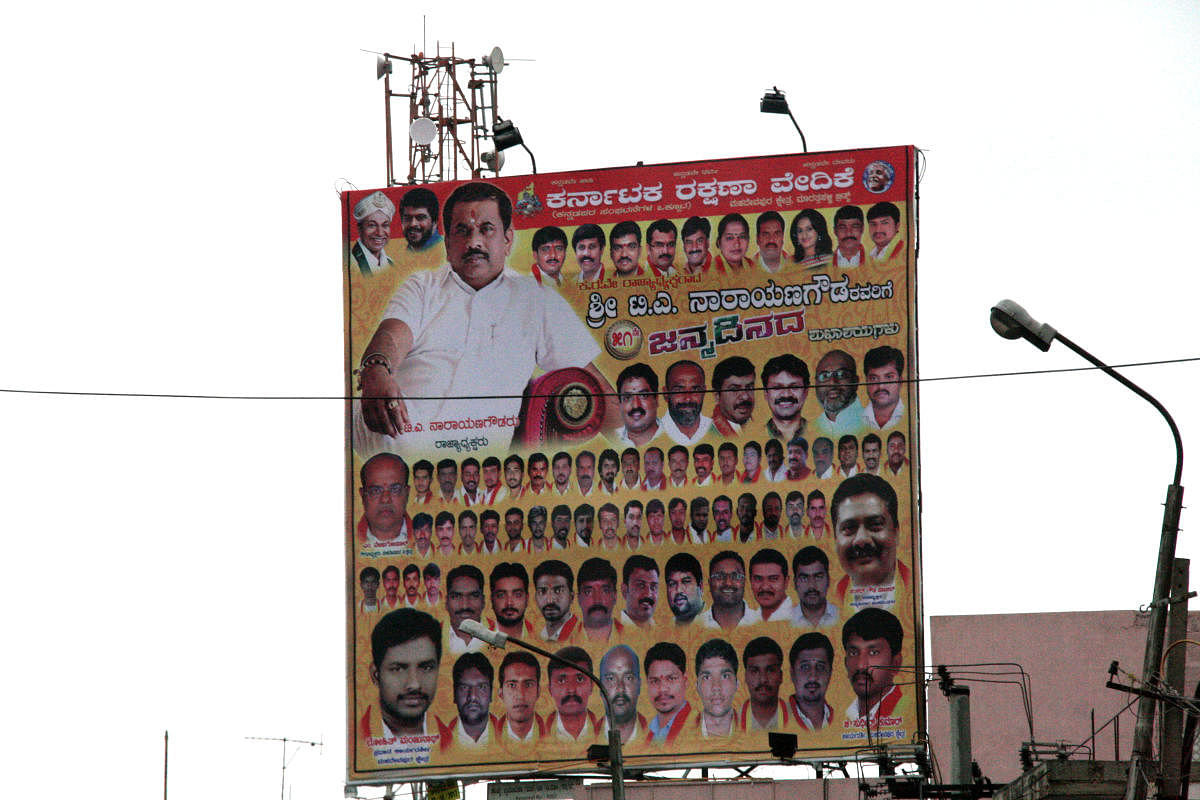
Ravikumar Kashi, Bengaluru-based artist released the book ‘Flexing Muscles’ in September 2019. The bilingual book is an amalgamation of long form essays in Kannada and English that explores the various political banners in the city. The result of a decade-long documentation, the book attempts to decode the significance of these banners against the visual culture and political climate of Bengaluru. “Visual language used outside the domain of art is connected to the art in itself. I wanted to focus on the commonalities and connection between these banners and how we understand art,” says Ravikumar.
In the book, he charts the significant changes, such as the increase in the number of flex banners in the city post 2003. “Over the last few years, the many ‘sene’ groups in the city started using these banners to communicate with people. This is obvious in the language and symbolism they use,” he shares.
Ravikumar began to deliver lectures based on his findings after the artist Pushpamala N encouraged him. “I was planning on collating this into an article at first, but it grew into a book. It took almost eight months to put it together,” he says. He tried to make the book an explainer for someone who would be interested in learning about the banners and their purposes. “I would look for the images that would best illustrate a point I was making,” he says.
He attempts to decode the language and visuals to show how they are used to convey a specific message.
For example, he says, female politicians are placed next to her husband, or near the bottom. This shows how many leaders are made to act as a puppet in the hands of their husbands, he explains.
“You can see hierarchy and relationships within political parties, and even mobility,” he says. He adds that these banners are temporary features but they say a lot about areas, and how they change.
After the court order banning the use of flex banners in the city, their numbers have reduced drastically, especially within central parts of the city.
While the book is in both Kannada and English, one doesn’t have to be well-versed in both.
“The book is doing very well abroad, mostly because the concept of flex banners is novel to most westerners,” he explains.
‘Flexing Muscle’ is priced at Rs 650 and can be found on Amazon, Champaca and Ankita Pustaka in Basavanagudi.